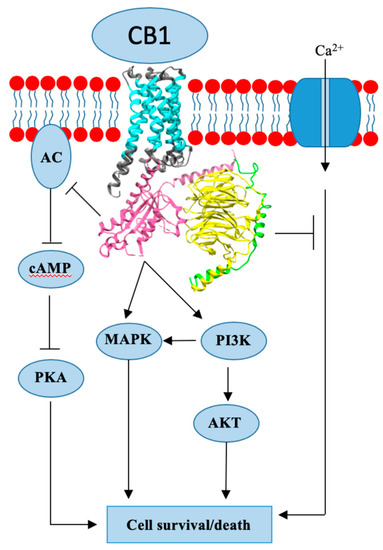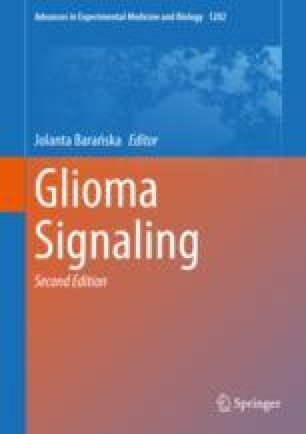 “Over the past decade there has been a surge of interest in the development of endocannabinoid-based therapeutic approaches for the treatment of diverse neuropsychiatric conditions. Although initial preclinical and clinical development efforts focused on pharmacological inhibition of fatty acid amide hydrolase to elevate levels of the endocannabinoid anandamide, more recent efforts have focused on inhibition of monoacylglycerol lipase (MAGL) to enhance signaling of the most abundant and efficacious endocannabinoid ligand, 2-arachidonoylglycerol (2-AG). We review the biochemistry and physiology of 2-AG signaling and preclinical evidence supporting a role for this system in the regulation of anxiety-related outcomes and stress adaptation. We review preclinical evidence supporting MAGL inhibition for the treatment of affective, trauma-related, and stress-related disorders; describe the current state of MAGL inhibitor drug development; and discuss biological factors that could affect MAGL inhibitor efficacy. Issues related to the clinical advancement of MAGL inhibitors are also discussed. We are cautiously optimistic, as the field of MAGL inhibitor development transitions from preclinical to clinical and theoretical to practical, that pharmacological 2-AG augmentation could represent a mechanistically novel therapeutic approach for the treatment of affective and stress-related neuropsychiatric disorders.”
“Over the past decade there has been a surge of interest in the development of endocannabinoid-based therapeutic approaches for the treatment of diverse neuropsychiatric conditions. Although initial preclinical and clinical development efforts focused on pharmacological inhibition of fatty acid amide hydrolase to elevate levels of the endocannabinoid anandamide, more recent efforts have focused on inhibition of monoacylglycerol lipase (MAGL) to enhance signaling of the most abundant and efficacious endocannabinoid ligand, 2-arachidonoylglycerol (2-AG). We review the biochemistry and physiology of 2-AG signaling and preclinical evidence supporting a role for this system in the regulation of anxiety-related outcomes and stress adaptation. We review preclinical evidence supporting MAGL inhibition for the treatment of affective, trauma-related, and stress-related disorders; describe the current state of MAGL inhibitor drug development; and discuss biological factors that could affect MAGL inhibitor efficacy. Issues related to the clinical advancement of MAGL inhibitors are also discussed. We are cautiously optimistic, as the field of MAGL inhibitor development transitions from preclinical to clinical and theoretical to practical, that pharmacological 2-AG augmentation could represent a mechanistically novel therapeutic approach for the treatment of affective and stress-related neuropsychiatric disorders.”
https://www.ncbi.nlm.nih.gov/pubmed/32197779
https://www.biologicalpsychiatryjournal.com/article/S0006-3223(20)30049-4/fulltext

 “Endocannabinoids play important roles in regulating CNS synaptic function and peripheral metabolism, but
“Endocannabinoids play important roles in regulating CNS synaptic function and peripheral metabolism, but  “The consistency, efficacy, and safety of cannabis-based medicines have been demonstrated in humans, leading to the approval of the first cannabis-based therapy to alleviate spasticity and pain associated with multiple sclerosis (MS). Indeed, the evidence supporting the therapeutic potential of
“The consistency, efficacy, and safety of cannabis-based medicines have been demonstrated in humans, leading to the approval of the first cannabis-based therapy to alleviate spasticity and pain associated with multiple sclerosis (MS). Indeed, the evidence supporting the therapeutic potential of  “For many centuries,
“For many centuries,  “Breast cancer (BC) is the most common cancer in women worldwide. Approximately 70-80% of BCs express estrogen receptors (ER), which predict the response to endocrine therapy (ET), and are therefore hormone receptor-positive (HR+).
“Breast cancer (BC) is the most common cancer in women worldwide. Approximately 70-80% of BCs express estrogen receptors (ER), which predict the response to endocrine therapy (ET), and are therefore hormone receptor-positive (HR+).
 “Neuropathic pain conditions including neuropathic orofacial pain (NOP) are difficult to treat. Contemporary therapeutic agents for neuropathic pain are often ineffective in relieving pain and are associated with various adverse effects. Finding new options for treating neuropathic pain is a major priority in pain-related research.
“Neuropathic pain conditions including neuropathic orofacial pain (NOP) are difficult to treat. Contemporary therapeutic agents for neuropathic pain are often ineffective in relieving pain and are associated with various adverse effects. Finding new options for treating neuropathic pain is a major priority in pain-related research. “Inflammatory Bowel Disease (IBD) is idiopathic, chronic and affects the gastrointestinal tract. It results from the association of genetic, environmental and immune deregulation, which culminates in the development and progression of the inflammatory process. In an attempt to reverse colonic inflammation, endogenous systems involved in intestinal physiology are studied and the cholinergic system is fundamental for this process. In addition, this system has anti-inflammatory action in experimental models of IBD. Another important endogenous system in regulating the exacerbated inflammatory response in the gut is mediated by endocannabinoids, which play an important role in restoring bowel functionality after the onset of the inflammatory process. There are several reports in the literature showing the interconnection between the cannabinoid and cholinergic systems in different tissues. Considering that the activation of the cholinergic system stimulates the production of cannabinoid agonists in the intestine, our hypothesis is that the interaction between the muscarinic system and the cannabinoid in the control of intestinal inflammation is mediated by endogenous cannabinoids, since they are stimulated by the activation of muscarinic receptors.”
“Inflammatory Bowel Disease (IBD) is idiopathic, chronic and affects the gastrointestinal tract. It results from the association of genetic, environmental and immune deregulation, which culminates in the development and progression of the inflammatory process. In an attempt to reverse colonic inflammation, endogenous systems involved in intestinal physiology are studied and the cholinergic system is fundamental for this process. In addition, this system has anti-inflammatory action in experimental models of IBD. Another important endogenous system in regulating the exacerbated inflammatory response in the gut is mediated by endocannabinoids, which play an important role in restoring bowel functionality after the onset of the inflammatory process. There are several reports in the literature showing the interconnection between the cannabinoid and cholinergic systems in different tissues. Considering that the activation of the cholinergic system stimulates the production of cannabinoid agonists in the intestine, our hypothesis is that the interaction between the muscarinic system and the cannabinoid in the control of intestinal inflammation is mediated by endogenous cannabinoids, since they are stimulated by the activation of muscarinic receptors.” “Cannabinoids are a group of structurally heterogeneous but pharmacologically related compounds, including plant-derived cannabinoids, synthetic substances and endogenous cannabinoids, such as anandamide and 2-arachidonoylglycerol.
“Cannabinoids are a group of structurally heterogeneous but pharmacologically related compounds, including plant-derived cannabinoids, synthetic substances and endogenous cannabinoids, such as anandamide and 2-arachidonoylglycerol. “Most of the drugs of abuse affect the brain by interacting with naturally expressed molecular receptors. Marihuana affects a series of receptors including
“Most of the drugs of abuse affect the brain by interacting with naturally expressed molecular receptors. Marihuana affects a series of receptors including